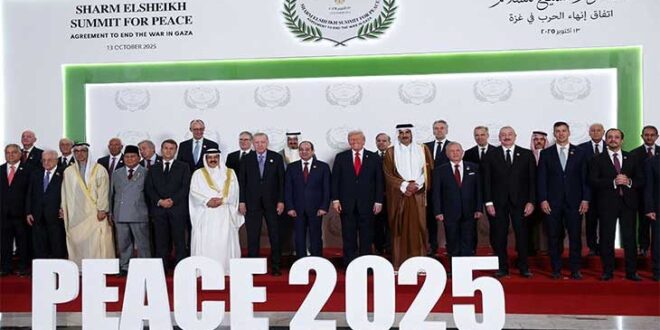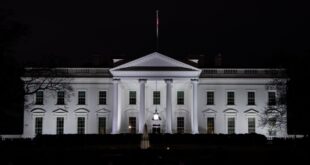Mohammed Ayoob
Israeli maximalism and wavering US support do not bode well for a lasting Israel-Palestine settlement.
After less than a month, the ceasefire in Gaza is already under immense pressure. In fact, one wonders if it is already irremediable. The trio of American mediators—Vice President JD Vance, Special Envoy Steve Witkoff, and Jared Kushner—have not been able to restrain Israeli prime minister Netanyahu from attacking Gaza twice in the past weeks. Dozens of Palestinians have been killed in retaliation for rogue Hamas and Islamic Jihad elements’ attacks on IDF targets that have killed and injured a handful of Israeli soldiers.
Moreover, it will be extremely difficult, if not impossible, to persuade Arab and Muslim countries to contribute troops to the International Stabilization Force in the present circumstances, especially if they have to fight Hamas cadres to disarm them. Therefore, the second phase of the truce, which includes the disarmament of Hamas and setting up some sort of governing authority in Gaza to replace it, already seems a non-starter. There are both short- and long-term reasons for this pessimistic conclusion.
First, it will be impossible to persuade Hamas to surrender all its arms and recede into political oblivion, which is a key Israeli demand that the United States endorses. Giving up arms would undermine its self-proclaimed raison d’être as a national resistance organization committed to fighting Israeli occupation. Hamas would be signing its death warrant if it complied. Moreover, in the unlikely event that Hamas agrees to this demand, other more radical organizations (like Palestinian Islamic Jihad) would likely emerge to replace it.
Secondly, as its recent disproportionate military response demonstrates, the Israeli government is chomping at the bit to restart its military campaign in Gaza. Netanyahu only accepted the ceasefire because of immense pressure from President Trump. A sizable number of his cabinet members oppose the ceasefire short of the complete destruction of Palestinian armed resistance and the full reoccupation of Gaza. The Israeli government will be perpetually looking for an opportunity to resume the military campaign in Gaza to achieve the maximalist ends that Netanyahu has clearly articulated at the beginning of the war. In fact, many in the government, including the military, will find this option attractive now that Hamas has released all living Israeli hostages.
Re-developing the 53 percent of Gaza still under direct Israeli occupation into the “rivera of the Middle East”, which implicitly endorses the notion of population transfer on a large scale, may have great appeal for Netanyahu and his right-wing allies. However, it simultaneously plays into the hands of the Hamas activists by confirming the worst Palestinian fears that Israel and the United States’ main goal is to denude Gaza of its population and annex it to Israel. It will only strengthen the Palestinian resolve to oppose Israeli and American designs and help restore Hamas’s credibility among the population in Gaza.
Most importantly, in the long term, the proposed arrangements following the truce, if it holds, are predicated on the assumption that Israeli hegemony in the Middle East will last. Israel’s success in decimating the military capabilities of Hezbollah, its expanded presence in Syria following the overthrow of the Assad regime, its ability, with American help, to seriously degrade Iran’s nuclear and missile capabilities, and its near destruction of Gaza have together created a false image that Israel can reshape the Middle East to suit its preferences without any significant opposition. Despite its militarily unchallenged position, Israel is a colossus with feet of clay.
The first reason for this is its demographic base. Israel, within its 1967 borders, has a population of 9.6 million, with Palestinians forming 21 percent or about 1.9 million of this population. The total Palestinian population, including the West Bank and the Gaza Strip, is 5.6 million. Greater Israel, which is the dream of a sizable proportion of Israelis and certainly of the present government, will have a population almost evenly divided between Jews and Palestinians. Therefore, in terms of demography, it will effectively be a binational state.
This is bound to pose an existential dilemma for Israel. It would have to accept the political as well as the demographic reality of a binational state with equal rights for all its Jewish and Palestinian citizens if it wants to remain a democracy and be accepted as such. Alternatively, it would have to openly acknowledge the fact that it is an apartheid state with one ethnic group ruling over the other, like South Africa under Afrikaner rule.
The first option would put an end to the Zionist dream of a Jewish state in the heart of the Middle East. The second will formalize the existing situation, but at the same time bring upon Israel a deluge of international opprobrium. Either of the options would leave Israel internally divided and internationally isolated. For such a state to sustain a hegemonic position in the region surrounded by hundreds of millions of active or latent hostile people would be a very tall order in the long term.
The second reason for the unsustainability of Israeli hegemony is that its Gaza campaign has scared off several Arab regimes, especially the Gulf sheikhdoms and Saudi Arabia, that had seen Israel as a counterweight to Iran’s ambitions in the region. This assessment was the driving force behind the Abraham Accords between Israel, the UAE, and Bahrain, later extended to Morocco and Sudan. These states now see Israel as running amok.
While some of them may have secretly applauded Israel’s decimation of Hezbollah, the 68,000 Palestinian casualties, including thousands of civilians, women, and children, and Israel’s policy of starving the besieged population, have left Arab states highly unnerved. Although these states are authoritarian regimes, their rulers realize that popular anger over the carnage in Gaza could reach a boiling point that would endanger their legitimacy.
Furthermore, September’s Israeli strike on Hamas negotiators in Qatar, in contravention of its promise not to attack, has convinced the Gulf regimes that they cannot consider Israel a trusted friend, let alone an ally. Their rulers now realize that they can also become the targets of Israeli attacks, despite their offers of friendship to and cooperation with the Jewish state. This has set back the Israeli-American dream of extending the Abraham Accords throughout the Gulf, and especially the all-important normalization with Saudi Arabia.
Finally, Israel’s actions in Gaza have brought about a sea change in popular opinion in the United States. This is extremely important because Israel’s ambition for hegemony in the Middle East rests on the assumption that it would have unflinching support from Washington for all its actions. While this may not be clear at first sight, the erosion in popular support for Israel in the United States is bound to be reflected in American policy in the not-too-distant future.
Trump’s railroading of Netanyahu to accept his peace plan, although it did not fully meet the latter’s goals, may be a sign of things to come. Israel’s dependence on the United States was laid bare for all to see by Netanyahu’s White House call to the Qatari prime minister to apologize for the September attack on Doha.
American popular opinion has never been so hostile toward Israel as it is now. A recent Pew poll found that almost 59 percent of Americans hold negative views of the Israeli government. Even a substantial proportion of American Jews have serious reservations about Israel’s actions in Gaza. Another recent Washington Post poll showed that 61 percent of American Jews hold the view that Israel has committed war crimes in Gaza, and 39 percent believe that Israel is committing genocide.
Many American academics, including most genocide scholars, believe that Israel’s policies in Gaza meet the legal definition of genocide. This is true of most human rights organizations as well. In short, American public opinion is now headed in the same direction as the opinion held in most European countries, which has forced many governments to recognize the State of Palestine despite Israel and the United States’ objections.
This swing in public opinion is eventually bound to influence decision-makers in Washington, especially since a considerable part of Trump’s MAGA base is opposed to Israel drawing America into another “forever war.”
That American support to Israel is of vital importance was demonstrated very clearly by its crucial dependence on Washington in its attempt to degrade Iran’s nuclear capabilities. It was the use of American bunker-buster bombs against Iranian nuclear facilities that brought the Israel-Iran war to a conclusion on terms favorable to Israel.
A major change in Washington’s approach to the Israel-Palestine conflict and toward the Middle East in general could transform the whole equation between Israel and its neighbors. This conclusion is reinforced by the fact that the United States has major strategic and economic interests in the Middle East, which have so far played a second fiddle to its unquestioning support for Israel. This could easily change under President Trump, given his transactional approach to international relations and his “America First” doctrine, where the interests of allies are considered secondary to American objectives, if not entirely irrelevant. If Trump can apply this logic to Europe today, he may very well apply it to the Middle East tomorrow.
Furthermore, with Iran’s nuclear and missile capabilities degraded and the Tehran-led Axis of Resistance in shambles, Israel’s strategic value to Washington has been reduced. In fact, it is beginning to be perceived in some circles as an obstacle to achieving America’s larger strategic and economic goals. Without America’s unconditional support, Israel’s dreams of regional hegemony would be shattered beyond repair.
The fragile truce in Gaza is not the beginning of a resolution to the Israeli-Palestinian conflict, let alone a reordering of the region. It is crucially dependent on sustained Israeli hegemony backed by unwavering American support, conditions which can no longer be considered permanent.
About the Author: Mohammed Ayoob
Mohammed Ayoob is University Distinguished Professor Emeritus of International Relations, Michigan State University, and the author, most recently, of From Regional Security to Global IR: An Intellectual Journey(2024).
Image: Saku_rata160520 / Shutterstock.com.
 Geostrategic Media Political Commentary, Analysis, Security, Defense
Geostrategic Media Political Commentary, Analysis, Security, Defense






